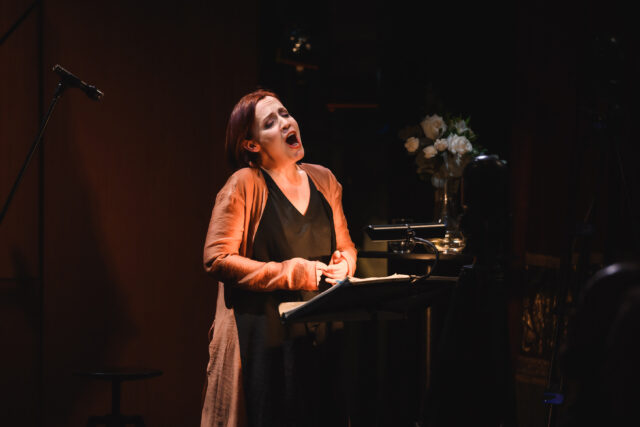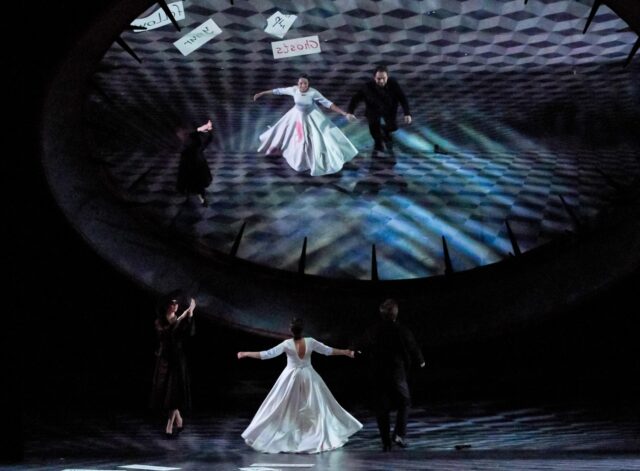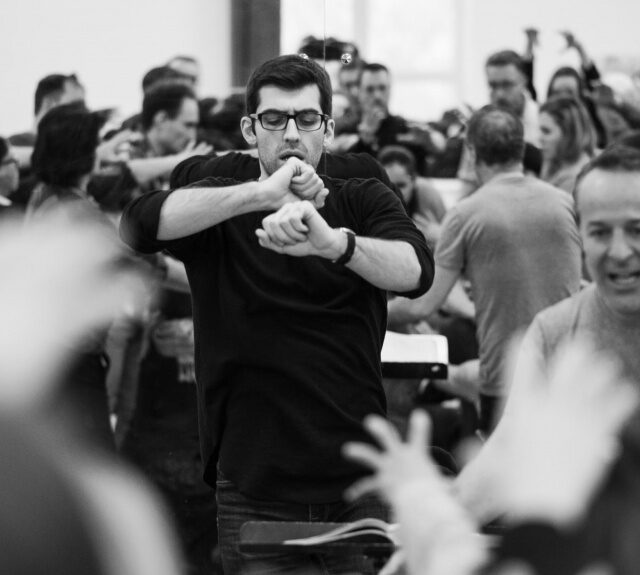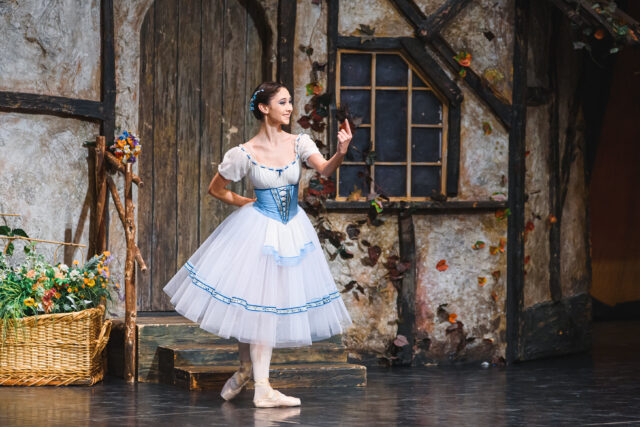When discussing the programme for the upcoming Diaghilev Festival, Teodor Currentzis set out two aims: on the one hand, to bring a forum to Perm which would include events that would interest any resident of Paris, Berlin, or London; and on the other hand, to swear allegiance to the spirit of Diaghilev, «who was always on the lookout for new forms, ideas, and concepts in art.» However, for the sake of fairness, we should mention that the festival opens with Kenneth MacMillan’s staging of the ballet Romeo and Juliet, which Diaghilev himself never included in his repertoire, as it went so grossly against his aesthetics and practices. Luxurious, multi-act, and full of characters, with extremely lavish costumes and complex set designs, this show would have distressed Diaghilev even quicker than The Sleeping Beauty, the work which almost led him to bankruptcy. Diaghilev could never stand narrative, literary ballets, easily understood and traditional in the best sense of the word — his main requirement of his colleagues was the sacred «Surprise me!» The only thing connecting the English Romeo and Juliet with the founder of Les Saisons Russes is the name Sergei Prokofiev, a leading «Diaghilevite». Although the composer wrote Romeo and Juliet not long before the war, already under Soviet rule, and the choreographer Kenneth MacMillan, knighted in Britain for services to culture, choreographed his version almost half a century ago, it has never been performed in Russia — the Perm audience will witness a Russian première.
The grandiose ballet in three acts and 13 tableaux has been brought fromEngland, in full compliance with the requirements of the MacMillan Foundation, with two ballet masters and coaches — Gary Harris and Karl Burnett. The lovers fromVeronawill be danced at thePermpremière by Natalia Domracheva and Ruslan Savdenov (theLondonpremière in 1965 starred Margot Fonteyn and Rudolf Nureyev). The luxury of Renaissance-eraVeronawill be almost authentic — the sets and costumes (a total of 250 items) have been made inItaly. In short, this is a classical theatrical banquet for the most diverse festival-going crowd.
Following in the footsteps of its western counterparts, the Diaghilev Festival now features artists in residence, guest performers who act as curators for the various festival events. This year, the artists in residence are conductor Romeo Castellucci, an inveterate troublemaker, and pianist and composer Anton Batagov, one of the most interesting and intellectually capricious figures in Russian music. Castellucci will present his play The Four Seasons Restaurant (30 May), dedicated to Mark Rothko and his conflicts with his rich New York patrons. The festival’s theatre programme includes a video version of Anatoly Vasiliev’s legendary Cerceau (1 June), as well as a creative gathering with the director himself (2 June). The dancing, which starts with Romeo and Juliet, continues with two of the ballets from Perm Opera’s repertoire (Jiří Kylián’sLes Noces and William Forsythe’s The Second Detail, 29 May) and Lo Real, a passionate performance with nods to flamenco written by Spaniard Israel Galván.
On 26 May, Anton Batagov will give a solo recital, entitled Battle on the Beach (a nod to Philip Glass’s opera Einstein on the Beach), offering an in-depth look at the history of minimalism in music — from modern composers to the early seventeenth century English virginalists. He will also give the world première of his composition Selected Letters of Sergei Rachmaninoff (28 May), and the same concert will feature Correspondence, a joint dialogue and work by Vladimir Martynov and Georgy Peletsis, which will be performed by Martynov himself and Polina Osetinskaya. Overall there are many interesting piano events — how, for instance, can one miss the opportunity to hear Alexei Lubimov and Currentzis’ MusicAeterna ensemble (31 May) or the programme compiled by Alexei Goribol to mark the centenary of the birth of Benjamin Britten (1 June)? But the programme of music does not stop there. Among the most distinguished guests are the Hilliard Ensemble (30 May), a renowned British vocal quartet, which takes equal delight in singing both early music and works by modern composers. They are already known to the Russian public mainly through their visits to the December Nights festival in Moscow. The most unexpected festival participant is the Russian rock band Auktyon, who will give an acoustic concert on 27 May. However, perhaps it is not so unexpected given the group’s collaborative experiments with contemporary art music aficionados from the capital. The festival will be rounded off by Stravinsky’s The Rite of Spring, to mark the work’s centenary. It will be performed by the combined festival orchestra, under the baton of Teodor Currentzis.
As well as all these musical and theatrical events and exhibitions, the festival also includes some ceremonial public events. As tradition dictates, the Diaghilev Readings International Symposium will take place during the festival. This is an academic event where in addition to speeches, new books dedicated to Diaghilev will be presented. The opening of the symposium on 26 May will be marked by a concert performance of Domenico Cimarosa’s comic opera Le astuzie femminili, in an apparent attempt to fairly reflect the passion of the young Diaghilev for the eighteenth century. On the same day, 26 May, the traditional presentation of the Diaghilev Award will take place. It is awarded to the theatre producers and managers responsible for the most radical new production of the past year. Once an event confined within Russia’s borders, the prize now looks further afield, and is clearly fighting to achieve serious international renown: only one of the seven contenders this year is from Russia (Andriy Zholdak’s [11] staging of Eugene Onegin at the Mikhailovsky Theatre) and the jury includes Marina Abramovic, Hans-Ulrich Obrist, and Richard Wagner’s great-granddaughter Nike Wagner.
Sergey Hodnev



